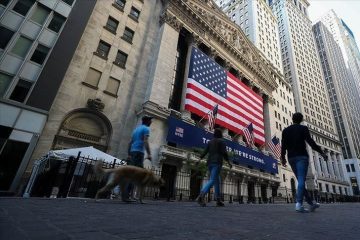Lessons to a columnist’s previous self
IN A British television show, “Doctor Who”, the titular character is able to travel anywhere in time and space in his Tardis police box. Given access to that technology, what useful message would this columnist impart to his previous self, nearly 12 years and 550 columns ago?
The first lesson would be to avoid confusing the economy with the financial markets. If you looked at share prices alone, you might assume the intervening period had been calm; the S&P 500 index is around double its level when this column began in September 2006. But though the markets have long since recovered their sangfroid after the crisis of 2008-09, the trend growth rate of developed economies has never regained its strength. That is a bitter irony given that the crisis originated within the financial sector, bringing to mind a teenager who crashes their parents’ car and leaves them with the bill.
In part, the market’s resilience was owing to the remarkable strength of corporate profits, something else that would not have been obvious 12 years ago. Back then American profits were only just reaching a post-war high, relative to GDP. When they plunged in 2009, it looked like a return to normal. But the pre-crisis levels were rapidly regained and, indeed, surpassed. Explanations for the strength of profits include less competition in some industries, in particular technology, and the way globalisation has suppressed wage growth. In turn, this sluggish growth of real wages was a significant factor in the rise of populism, another big development of the past 12 years.
The second lesson would be never to underestimate the power of central banks. Readers would have scoffed if this column had forecast, back in 2006, that short rates would be cut to zero and below; that trillions of dollars of government bonds would trade on negative yields; and that even the ultra-cautious European Central Bank would join its peers in wholesale purchases of government debt. But quantitative easing happened without creating the inflation that many feared. And it perhaps averted another Depression.
Another timely tip back in 2006 would have been to relax about China. Those who worried about a banking crash or “ghost cities” full of vacant skyscrapers have yet to be proved right. China’s economy may be growing a little more slowly, but it has not stalled. More broadly, there have been crises in specific emerging markets over the past decade, but nothing as widespread as the turmoil of the late 1990s.
Perhaps these were obvious monsters, like the Doctor’s foes, the Daleks, who could be confused by the simple expedient of throwing a coat over their heads or (in early series) defeated by their inability to climb stairs. The greater financial dangers may be the equivalent of the Weeping Angels—living statues that creep up on you when you are not looking.
For example, experience has shown that there is no innovation, however seemingly benign, that the finance sector cannot overcomplicate and overextend. Securitisation was a good idea when first adopted, but ended with the mess of subprime loans that were sliced and diced into a dog’s breakfast. Exchange-traded funds (ETFs) are an excellent idea—a low-cost way for investors to own a diversified portfolio. But there are now too many funds and too many unnecessary varieties, such as ones that bet on trends in volatility or invest in ETF providers.
One day, this overexpansion may turn out to be a problem, especially as some ETFs have a liability mismatch. They offer instant liquidity in assets, like corporate bonds, that are fundamentally illiquid. Market-makers known as authorised participants (APs) are supposed to step in and keep the price of ETFs and asset values aligned. But as Helen Thomas of Blonde Money, an economic consultancy, points out, it is not clear which APs back which fund, nor whether it is easy for them to hedge their risks. What will happen in a sharp market downturn?
Markets have recovered from the crisis of 2008. But some day a combination of high valuations, illiquidity and the withdrawal of monetary stimulus by central banks will cause a problem that takes more than the Doctor’s sonic screwdriver to fix. Forecasting exactly when that will happen is the tricky bit and, sadly, Buttonwood’s Tardis can only go backwards, not forwards, in time.
Indeed, the moment has come for a change. Eventually, after a few series, Doctor Who has to regenerate and be replaced by someone younger, and with a better script. The same is true of columnists. Thank you all for reading.
This article appeared in the Finance and economics section of the print edition under the headline “Thinking outside the police box”


